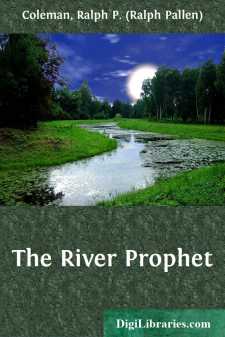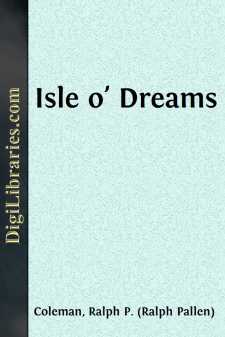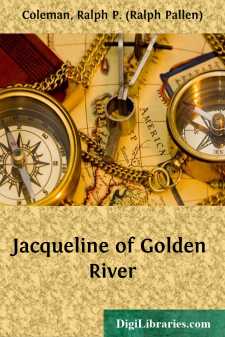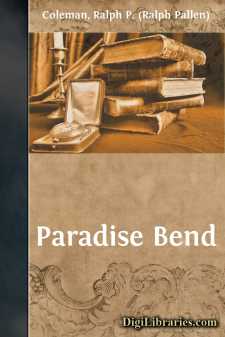Categories
- Antiques & Collectibles 13
- Architecture 36
- Art 48
- Bibles 22
- Biography & Autobiography 813
- Body, Mind & Spirit 142
- Business & Economics 28
- Children's Books 15
- Children's Fiction 12
- Computers 4
- Cooking 94
- Crafts & Hobbies 4
- Drama 346
- Education 46
- Family & Relationships 57
- Fiction 11828
- Games 19
- Gardening 17
- Health & Fitness 34
- History 1377
- House & Home 1
- Humor 147
- Juvenile Fiction 1873
- Juvenile Nonfiction 202
- Language Arts & Disciplines 88
- Law 16
- Literary Collections 686
- Literary Criticism 179
- Mathematics 13
- Medical 41
- Music 40
- Nature 179
- Non-Classifiable 1768
- Performing Arts 7
- Periodicals 1453
- Philosophy 64
- Photography 2
- Poetry 896
- Political Science 203
- Psychology 42
- Reference 154
- Religion 513
- Science 126
- Self-Help 84
- Social Science 81
- Sports & Recreation 34
- Study Aids 3
- Technology & Engineering 59
- Transportation 23
- Travel 463
- True Crime 29
The River Prophet
Description:
Excerpt
CHAPTER I
Elijah Rasba lived alone in a log cabin on Temple Run. He was a long, lank, blue-eyed young man, with curly brown hair and a pale, almost livid complexion. His eye-brows were heavy and dark brown, and the blue steel of his gaze was fixed unwaveringly upon any object that it distinguished.
Two generations before, Old Abe Rasba had built a church on a little brook, a tributary of Jackson River, away up in the mountains. The church was laid up of flat stones, gathered in fields, from ledges of rock and up the wooded mountain side. It was large enough to hold all the people for miles around, and the roof was supported by massive hewn timbers, and some few attempts had been made to decorate the structure.
Old Abe had called his church “The Temple,” had preached from a big hollow oak stump, and laid down the Law of the Bible, which he had memorized by heart, and expounded from experience. Elijah Rasba, grandson of Old Abe, thus came honestly by reverence and religion, but the strange glory which had surrounded the old Temple had departed from the ruin, and of all the congregation, only Elijah remained.
Land-slips had ruined a score of farms cleared on too-steep hills; lightning had destroyed the overshot grist mill, and the two big stones had been cracked in the hot flames; a feud had opened graves before the allotted time of the victims. It seemed to Elijah, sitting there in his cabin, as though damnation had visited the faithful, and that death was the reward of belief.
The ruins of the old Temple stood melancholy where the heavy stone wall, built by a man who believed in broad, firm foundations, had split an avalanche, but without avail, for the walls had given way and let the roof beams drop in. No less certain had been the fate of the congregation; they, too, were scattered or dead. There remained but one dwelling in the little valley, with a lone occupant, who was wrestling with his soul, trying to understand, for he knew in his heart that he must read the truth and discover the meaning of all this trouble, privation, disaster, and death.
He was quite practical about it. He had a field of corn, and a little garden full of truck; over his fireplace hung a 32-20 repeating rifle, and in one corner were a number of steel traps, copper and brass wire for snares, and a home-made mattock with which a rabbit could be extricated from a burrow, or a skunk-skin from its den.
An Almanac, a Bible, and a “Resources of Tennessee” comprised the library on the shelf. The Almanac had come by mail from away off yonder, about a hundred miles, perhaps—anyhow, from New York. The “Resources of Tennessee” had come down with a spring freshet in Jackson River, and was rather stained with mountain clays. The Bible was, of course, an inheritance.
It was a very small article, apparently, to create all the disturbances that seemed to have followed its interpretations there on Temple Run. Elijah would hold it out at arms length and stare at it with those sharp eyes of his, wondering in his soul how it could be that the fate of nations, the future of humanity, the very salvation of every soul rested within the compass of that leather-covered, gilt-edged parcel of thin paper which weighed rather less than half as much as a box of cartridges....





